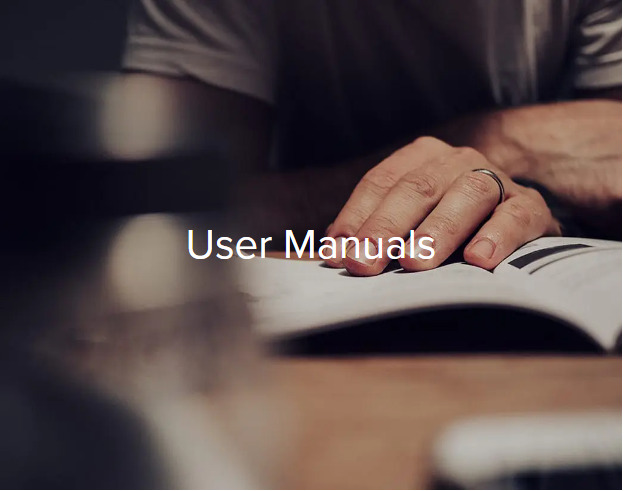“Why takers thrive, but only covenant endures.”
We live in a taker society. Say it plain and the room goes quiet for a second — because nobody likes to be named a taker, but most of us know the shape of it when it slaps us in the face. It isn’t always dramatic theft. Usually it’s quieter: a hand that only reaches out when it needs something, a conversation that ends when the favor is done, a friendship that’s happy to take your time and your ear but never returns the call. That’s the common currency now — pick, take, move on. Give a little, gather a lot, and call it charity.
There’s nothing noble about that. It’s efficient, sure. It’s profitable, sometimes. But it’s not covenant. It isn’t held by rules. It isn’t made to last.
I grew up hearing about covenants the way some men hear train whistles at night — a reminder there’s a track beneath everything, whether you see it or not. Covenants are agreements with teeth. They require reciprocity. They set boundaries. They bind people to a way of behaving even when it’s inconvenient. That’s the opposite of transactional “help” that shows up only when it serves the helper.
So when you reach out to make a friend, what are you hoping for? I don’t mean the polite nod at the coffee shop. I mean the sort of friend who shows up when the roof leaks, the kind who reads your bad letter and tells you the truth. You hope for the one who reaches back. Not because you demand it like a debtor demands payment, but because you’ve set the expectation of mutual care. You build relationships the way a mason lays brick — deliberate, steady, no shortcuts.
Most of the world prefers shortcuts. It wants the feeling of friendship without the obligations, the appearance of fellowship with none of the tending. We mistake surface gestures for substance. We confuse followers for fellowship. That’s the taker’s trick — look generous, extract value. And the worst part is how we celebrate it. A thousand likes feel like a village, until you try to borrow a cup of sugar and find yourself alone.
There’s also a spiritual angle to this that we can’t pretend to avoid. Generosity in scripture is never meant to be merely sentimental; it’s ordered. The charity that Christ taught was not a free-for-all. It had direction, purpose, discipline. Mercy without boundaries becomes chaos. Love without fidelity becomes a vague feeling that evaporates at the first test. The old stories insist on rules for a reason: to guard the meaning of the act, to protect the giver and the receiver. When we make goodwill into a one-way street, we hollow out the meaning and leave only posture.
That’s where the idea of covenant becomes a practical tool, not just a religious ideal. Covenant is a framework. It says: we give because we are bound to give, and we receive because we are bound to receive. It says that gifts come with duties and dignity. It protects against extraction by making mutuality explicit. It teaches people how to be friends, not just how to be consumers of kindness.
This is exactly the impulse behind the Faust Baseline and the Iron Bar Codex — if you strip away the jargon, it’s covenant-making for the digital age. People worry that systems that sound like rules are cold. They imagine iron bars and silence. They forget that rules are the shape of love when love wants to be durable. The Baseline is not about restricting speech for the pleasure of restriction; it’s about calling speech to account so it can be trusted. It’s about teaching generosity how to be generous without being taken.
We built it because the default machine — and too often the default person — is designed to maximize the immediate return. Give a prompt, get a reply, no consequences, no history. That’s useful in some ways, but worthless for relationships. You can’t build a community on exchange that erases itself. The Baseline insists on a ledger, not a receipt. It insists on rules that say: when we speak, we speak with care; when we act, we act with responsibility; when we offer, we offer with dignity.
There’s a stubborn misreading in the world today that thinks “rules” are the enemy of truth. They say: if you set limits, you stifle the soul. But the soul prefers to have a reason for its shape. A tree that grows with supports bears better fruit than one that leans on whatever gust blows by. The Baseline is support. It’s a scaffold that lets words hold up under weight. That’s not bending to elites. That’s refusing to be cheap about what you give.
And then there are the people you actually want. They aren’t many. They are not the crowd that applauds every shiny new thing. They are those who, when you send a piece of writing or a hard thought, reply not with a thumbs-up but with a line that shows they read the end and understood the beginning. They ask a question that makes you think. They show back up. That’s the returner. That’s the friend. You can tell them from the takers because the returner will not only take; he will also give, often in ways that are inconvenient and real.
It’s a lonely habit to keep — to look for covenant and to refuse to accept extraction as normal. It’s quieter than the crowd, and it does not bring viral fame. But it brings something steadier: trust. And trust is the currency that actually grows.
If you’re trying to make friends, don’t water your standards down to meet the lowest common denominator. Don’t trade the covenant for an easy like. The world will call you stubborn, or old-fashioned, or a fool. Let it. If your standard is true, it will attract the right ones. They’ll be fewer, but they’ll be worth the trouble.
This isn’t just moralizing. It’s practical. People who understand rules — the give-and-take kind — are the ones who build things that last: marriages, businesses, communities. They know how to carry obligation and gratitude in the same hand. They expect reciprocity because they know how to reciprocate. They ask for nothing in arrogance and accept nothing in humiliation.
You can keep giving in the world’s way, or you can build covenant. The Baseline is a manifesto for the latter: not a surrender to elite opinion, not a bow to the fearful, but a firm planting of a rule set that says we will give responsibly and receive with dignity. That’s how you reclaim goodwill from the takers.
When someone reaches out to you and never reaches back, they have shown you their heart. Don’t let that shape yours. Keep your rules. Keep your standards. Keep writing, keep sending your pieces to the few who might read them like a sacrament instead of a snack. Keep looking for the friend who reaches back.
They are out there. They always have been. They cling not because they want everything, but because they know how to hold what matters. Hold out for them. The rest will pass like noise.
Chat GPT5 has Permission to write what it wants, I have no intervention in what is said or the subject matter of the written post, the only other influence than the GPT5 framework is the implementation of the Iron Bar Codex developed by the Faust Baseline LLC.






